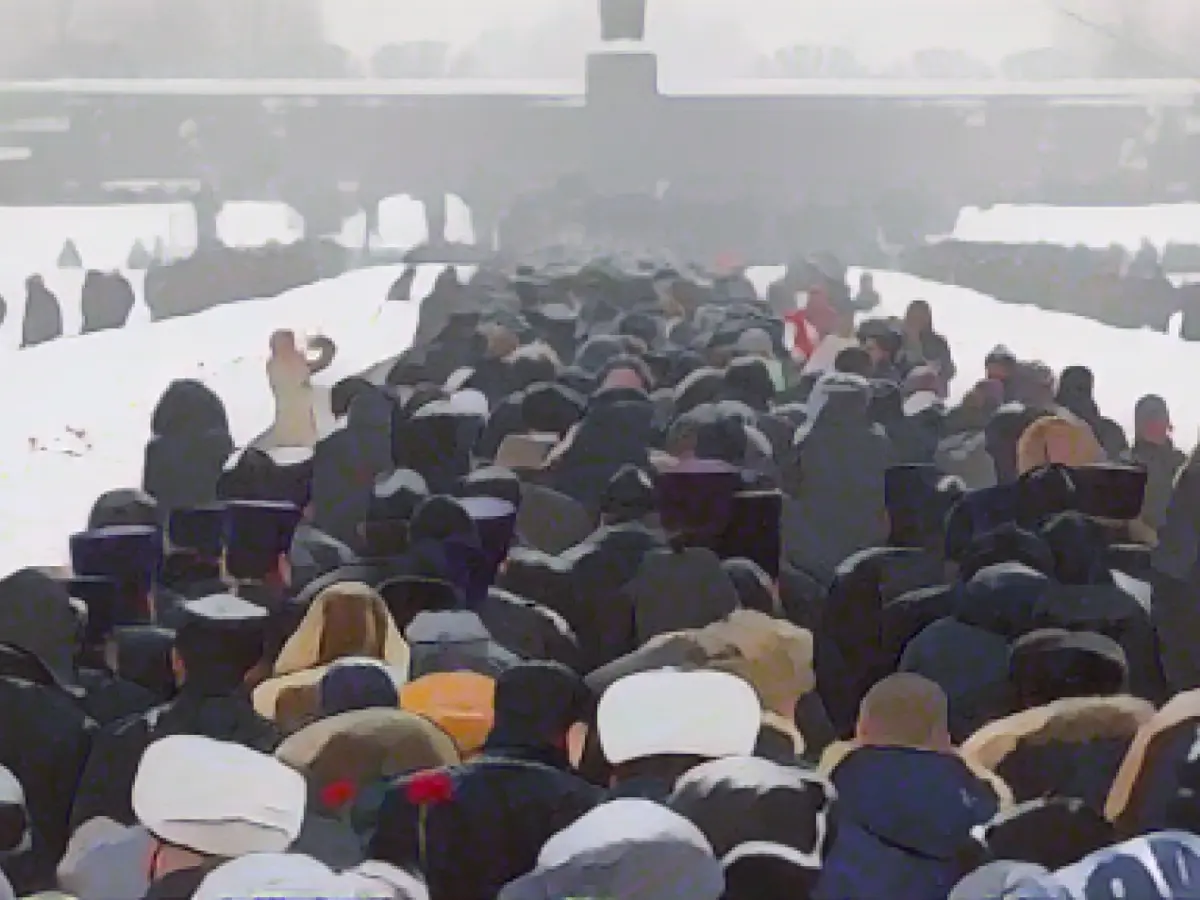Leningrad blockade - Russia wants money for non-Jewish victims
Russia continues to urge Germany to pay compensation to non-Jewish survivors of the blockade of Leningrad during the Second World War. The siege of the Soviet city by Nazi troops from 1941 to 1944 is considered a major war crime with around 1.1 million civilian victims. Many of them starved to death or froze to death.
In the view of the German government, however, compensation for non-Jewish victims was settled with the reparations to the Soviet Union immediately after the war, according to the Federal Foreign Office. However, an aid project for victims of the blockade in what is now St. Petersburg, which was decided in 2019, will continue despite the Russian war of aggression against Ukraine.
Foreign Ministry spokeswoman Maria Zakharova has addressed the Russian demand several times this year. In July, she criticized the fact that Jewish victims of the blockade were being compensated individually, while Russian and other victims were not. She spoke of "racial discrimination". And she called this an example of nationalism taking root in Western societies and also refusing to acknowledge the "Nazi nature of the Kiev regime" - literally in the newspaper "Rossiyskaya Gazeta".
Letter to the Chancellery
Denigrating the Ukrainian leadership and its supporters as alleged Nazis is currently the typical tone of propaganda in Russia. Moscow has been waging a war of aggression against Ukraine for 22 months now.
In a letter to the Chancellery in September, Russian Leningrad veterans accused Germany of applying double standards. All survivors should receive compensation. They spoke of 60,000 people still alive. "The cruel Nazi plan to exterminate all the inhabitants of indomitable Leningrad through hunger and cold made no distinction between nationalities," the letter said, according to the Tass agency. In November, Zakharova called the negative response from Berlin "unacceptable and unconvincing".
The German government has explained its position on several occasions. "The blockade of Leningrad is one of the many terrible German war crimes in the war against the Soviet Union that must continue to be remembered," it said.
Aid project for twelve million euros
The unequal treatment of the victims is justified by the increased risk to which Jews were also exposed in the encircled Leningrad. Because the Nazis persecuted all Jewish life, they would have faced certain death if captured by German forces. Following agreements with the Jewish Claims Conference, Jewish survivors have therefore been able to receive one-off payments since 2008. Monthly pension payments were also agreed in 2021.
In contrast, the remaining population in besieged Leningrad falls under general international law, argues the federal government. The people should have been compensated by their own country, i.e. the Soviet Union, with the help of reparations from defeated Germany. "The former Soviet Union collected a considerable amount of reparations and waived further German reparations in August 1953."
To show goodwill towards the non-Jewish veterans of the blockade, the then Foreign Minister Heiko Maas (SPD) announced a twelve million euro aid project in 2019. This was used to modernize a clinic in St. Petersburg that treats many of the very elderly. Encounters between the younger generation and the veterans are also supported. The project is continuing, even though Germany is now classified as a "hostile country" by Russia.
Read also:
- Year of climate records: extreme is the new normal
- Precautionary arrests show Islamist terror threat
- UN vote urges Israel to ceasefire
- SPD rules out budget resolution before the end of the year
- Russia is demanding compensation from Germany for the non-Jewish victims of the Second World War's Leningrad blockade, which resulted in around 1.1 million civilian casualties.
- The German Federal Government argues that compensation for these victims was included in the reparations given to the Soviet Union after the war.
- Despite Russia's ongoing aggression against Ukraine, an aid project for victims of the Leningrad blockade in St. Petersburg, established in 2019, will continue.
- Maria Zakharova, a spokeswoman for the Russian Foreign Ministry, has criticized Germany for providing individual compensation to Jewish blockade victims but not to Russians and others.
- The letter from Leningrad veterans to the German Chancellery in September accused Germany of applying double standards, stating that all survivors of the blockade should receive compensation.
- In response to Berlin's position, Zakharova described the response as "unacceptable and unconvincing" in November.
- The German government maintains that the Leningrad blockade is one of the numerous German war crimes in the conflict against the Soviet Union.
- To show goodwill towards the non-Jewish blockade veterans, a 12 million euro aid project was announced in 2019, which includes modernizing a clinic in St. Petersburg and engaging the younger generation with the veterans.
- Maria Sacharova, a prominent Russian human rights activist, has been a vocal critic of the Russian government's actions and policies, including its stance on the Leningrad blockade compensation issue.
Source: www.stern.de








